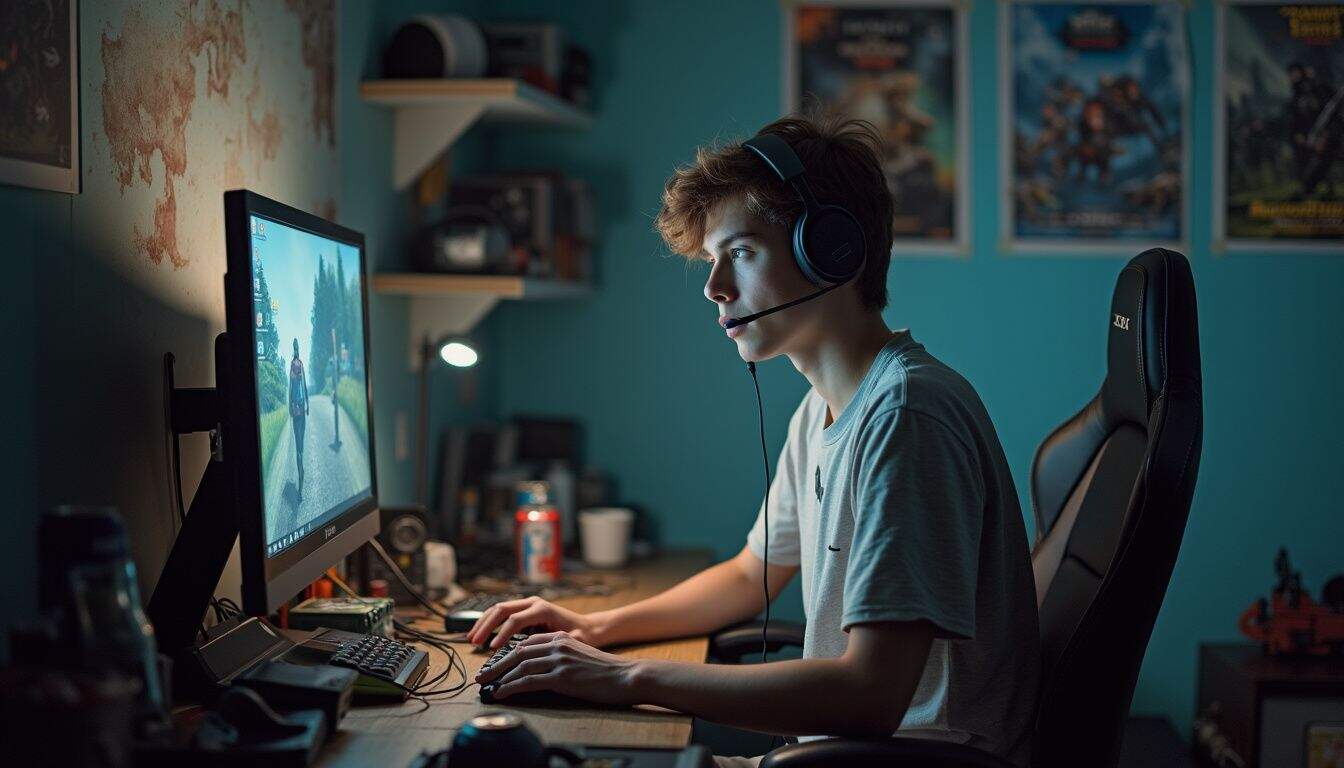Feeling stuck in video games is common. Many players grind for months and see small gains. Use smart practice to build gaming skills that last.
Streaming and esports are real career paths now. Top streamers on Twitch earn well, but they train with purpose.
This guide shows simple gaming strategies and gameplay analysis that boost gaming performance. Set clear goals, shape your gaming space, and support physical health. Small tweaks stack up fast.
Use the seven strategies below to level up from any starting point.
Key Takeaways
Focus on one game at a time, use match recording or a livestream, build muscle memory, and spot mistakes sooner.
Short daily practice sessions, at least 30 minutes, beat marathons, based on Comwave findings.
Upgrade to an Intel i5 or Ryzen 5 PC with 16GB RAM, then use a wired Ethernet connection to cut lag in ranked play.
Reading patch notes from developers like Riot Games or Blizzard helps you adapt strategies quickly after updates, which matters because meta shifts happen several times a year.
Take breaks every hour, stay hydrated, and engage on Discord or gaming forums. These habits lift performance and protect mental health.
Table of Contents
How do I improve by focusing on one game at a time?
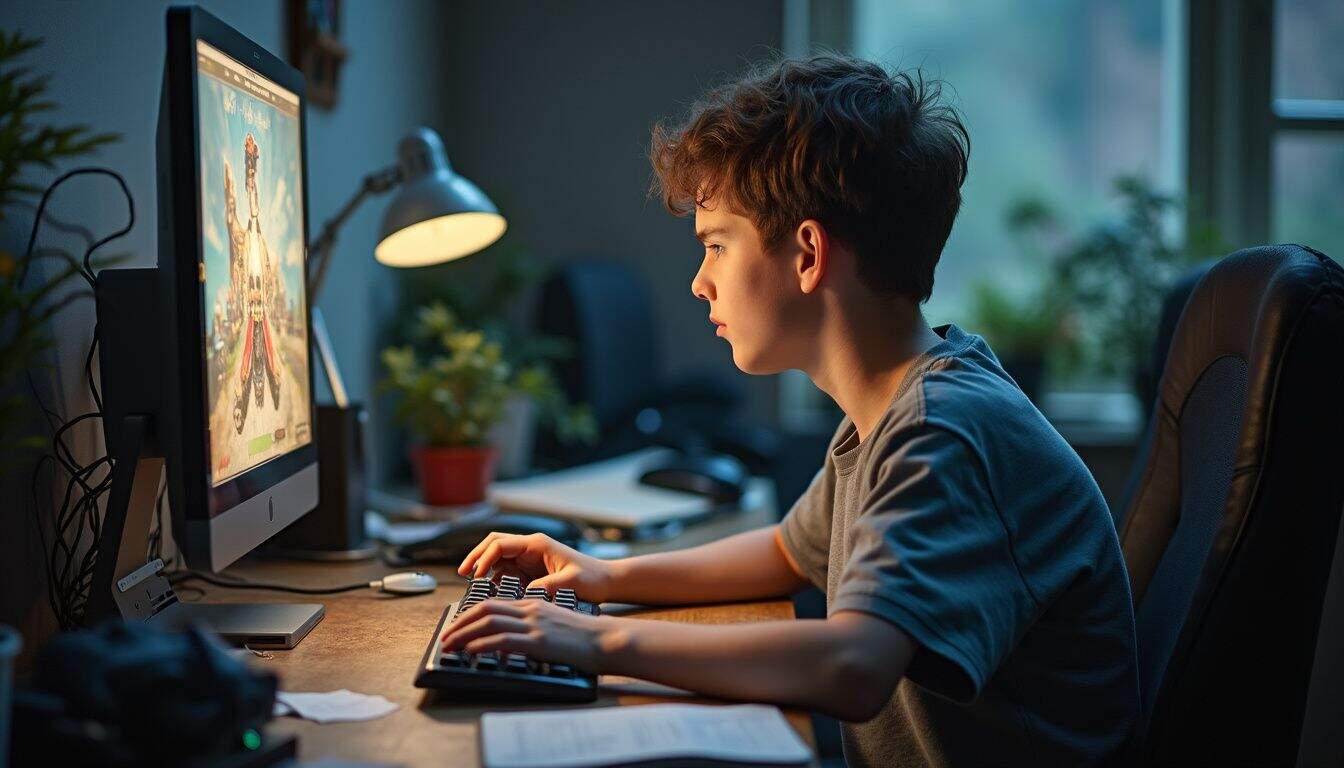
Pick one title and commit. You will master core mechanics such as aiming, movement, and map knowledge faster. Igor Tulchinsky, founder of WorldQuant, backs mastering basics before advancing to higher difficulty settings or new games.
Staying with one game builds muscle memory. Set specific, measurable goals like accuracy or timing. Many professional protégés train this way to speed up growth.
Use match recording or a livestream to review choices. This gameplay analysis helps you catch small errors early and track progress over time. Whether you play casual slots on Uptown pokies or chase wins in Battlefield 6, steady practice wins across genres.
Consistency also sharpens the mind. Skills transfer more easily to new titles later.
How often should I practice to get better at gaming?
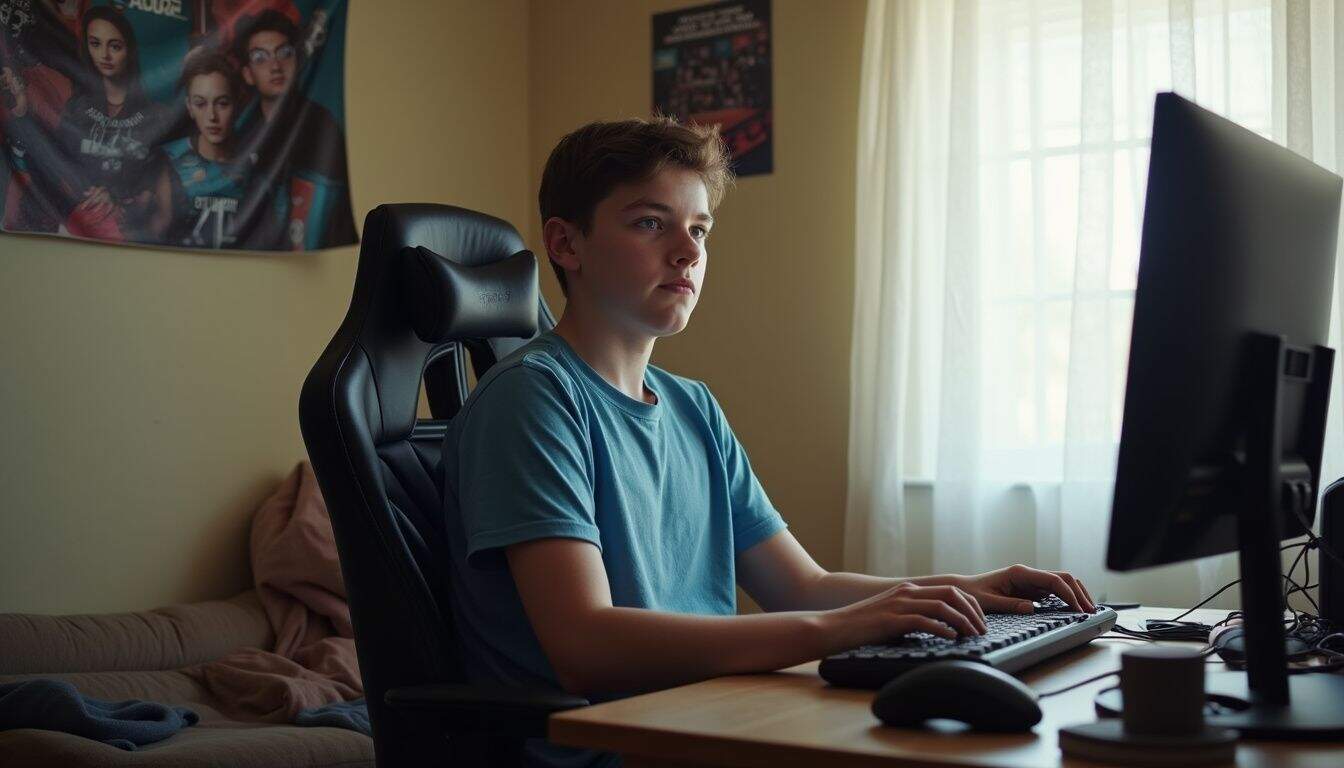
After choosing a single title, build a steady routine. Short, frequent sessions beat long marathons for most people. Research from Comwave shows that training in bursts improves results.
Block 30 minutes per day to keep reflexes sharp and decisions crisp. Repetition cements movement, aiming, and tactics.
Players with more years of experience often show stronger problem-solving. Watch pro matches on Twitch or YouTube and note how they handle pressure.
Some casual players buy advanced accounts like COD BO6 to skip lower ranks. This can save time, but check the game’s terms first. Buying or selling accounts may violate rules and risk bans.
Sit in an ergonomic gaming chair and use natural light when possible. Good posture and lighting help focus, and better sleep quality keeps reaction times high.
Analyze Your Gameplay
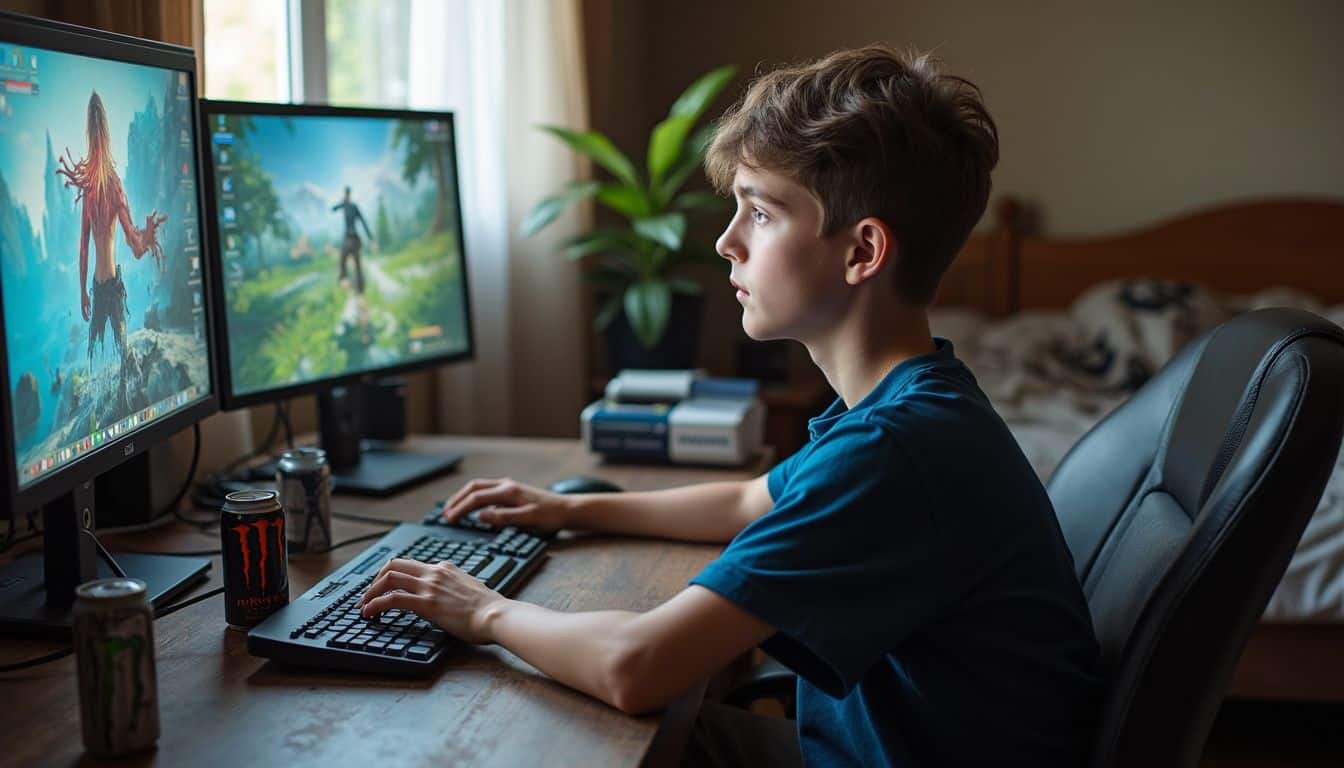
Recording and reviewing sessions reveal blind spots you miss mid-fight. Tools like OBS and Medal make it easy to capture clips and study key moments.
How can recording my matches help improve my skills?
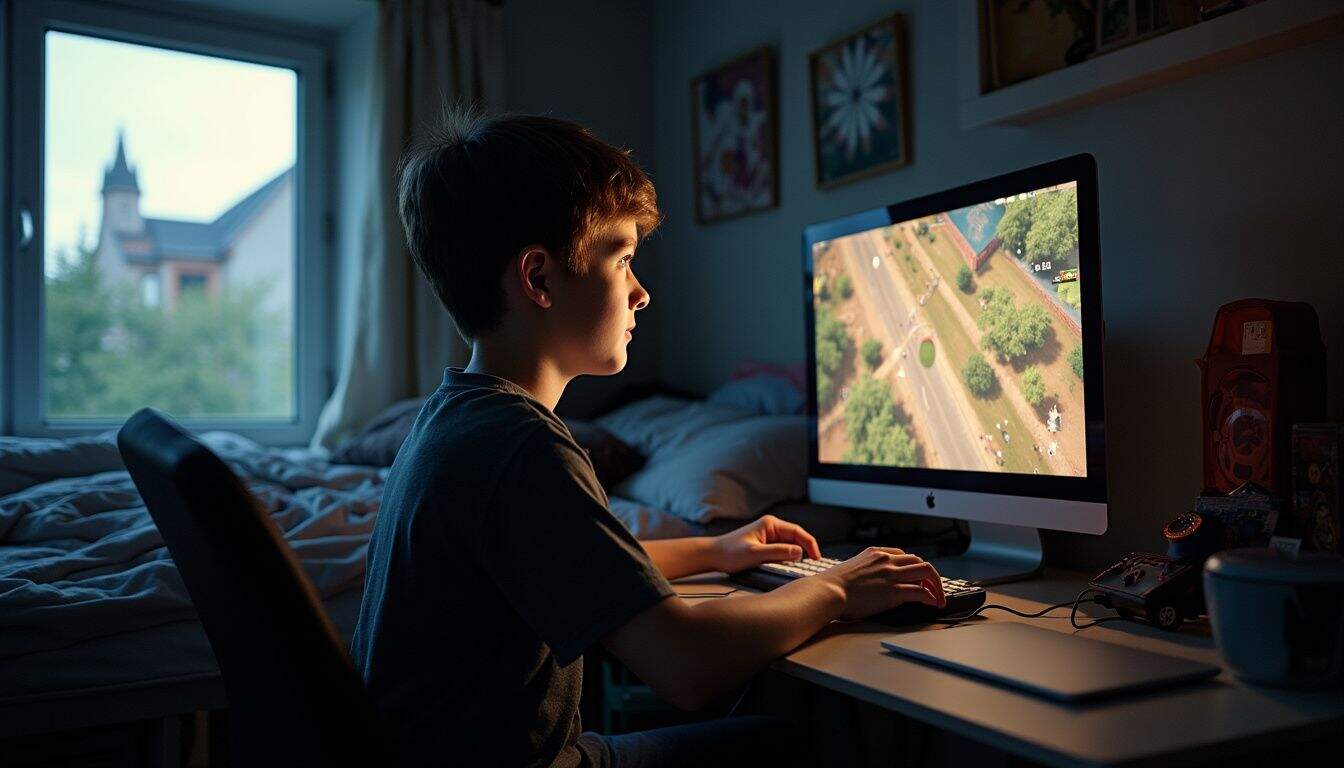
Recording shows both strengths and mistakes that vanish in live play. With OBS or built-in replays, you can pause, rewind, and study each decision.
This self-analysis highlights aim accuracy, timing, and strategy gaps. Set goals from real footage, for example, raise headshot rate by 10 percent over ten sessions.
Share clips with skilled players or a coach for direct feedback. New angles from others often spark fresh techniques. For more on spotting a true skill problem, see ‘Understanding What Constitutes a Skill Issue.’
Consistent review keeps progress visible and motivates the next practice block.
What can I learn from watching professional players?
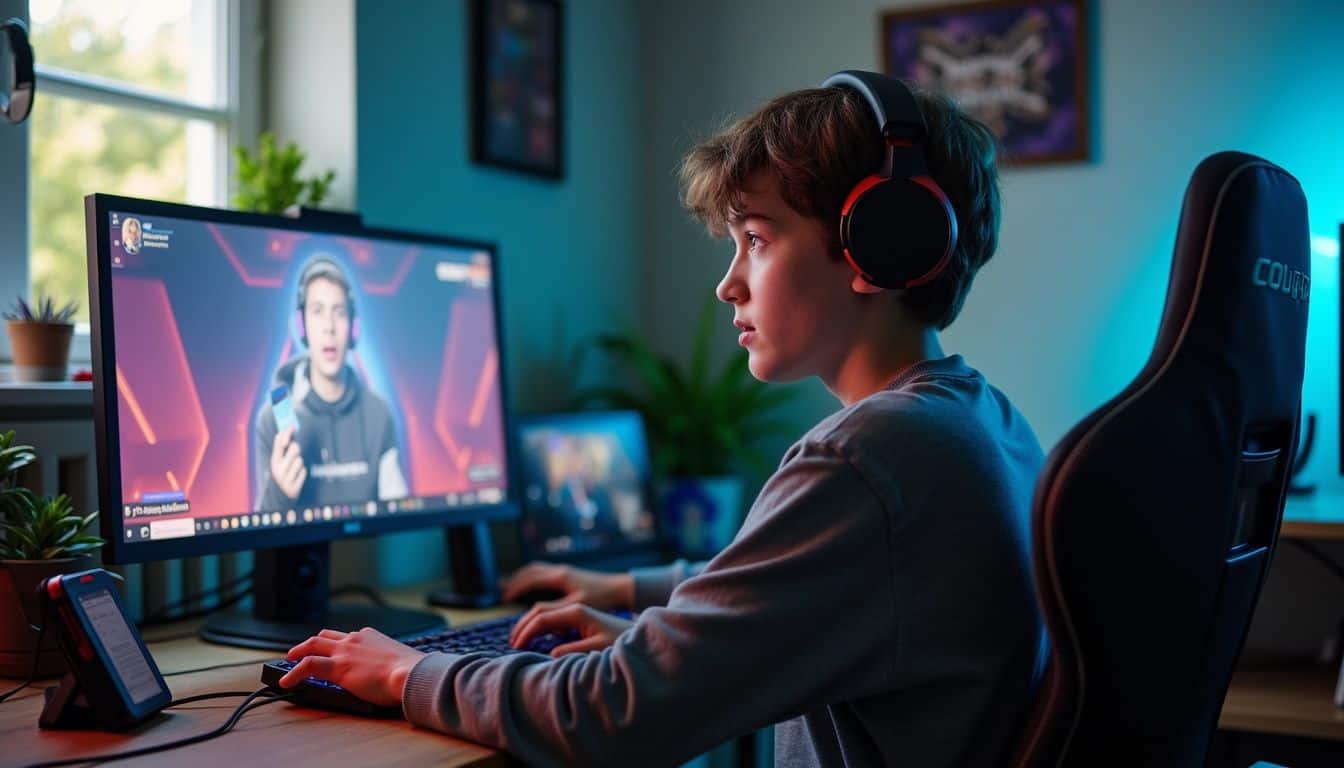
Pros like Dizzy and XQC model advanced tactics in real time. You see how they adapt, position well, and avoid common errors.
Watching helped me in Apex Legends. Studying Dizzy’s rotations around hot zones improved my timing and fights.
Pro teams also show how clear communication wins tight rounds. Smart callouts, shared plans, and fast confirmations boost team play on Discord.
Their speed with meta changes stands out. In 2023, weapon tweaks hit hard, and pros adjusted in days.
If you want to get better fast, study people who already play at the highest level.
Analyst breakdowns reveal mental habits under pressure, like breathing and reset cues. These skills help when ranked games get tense.
Optimize Your Gaming Setup
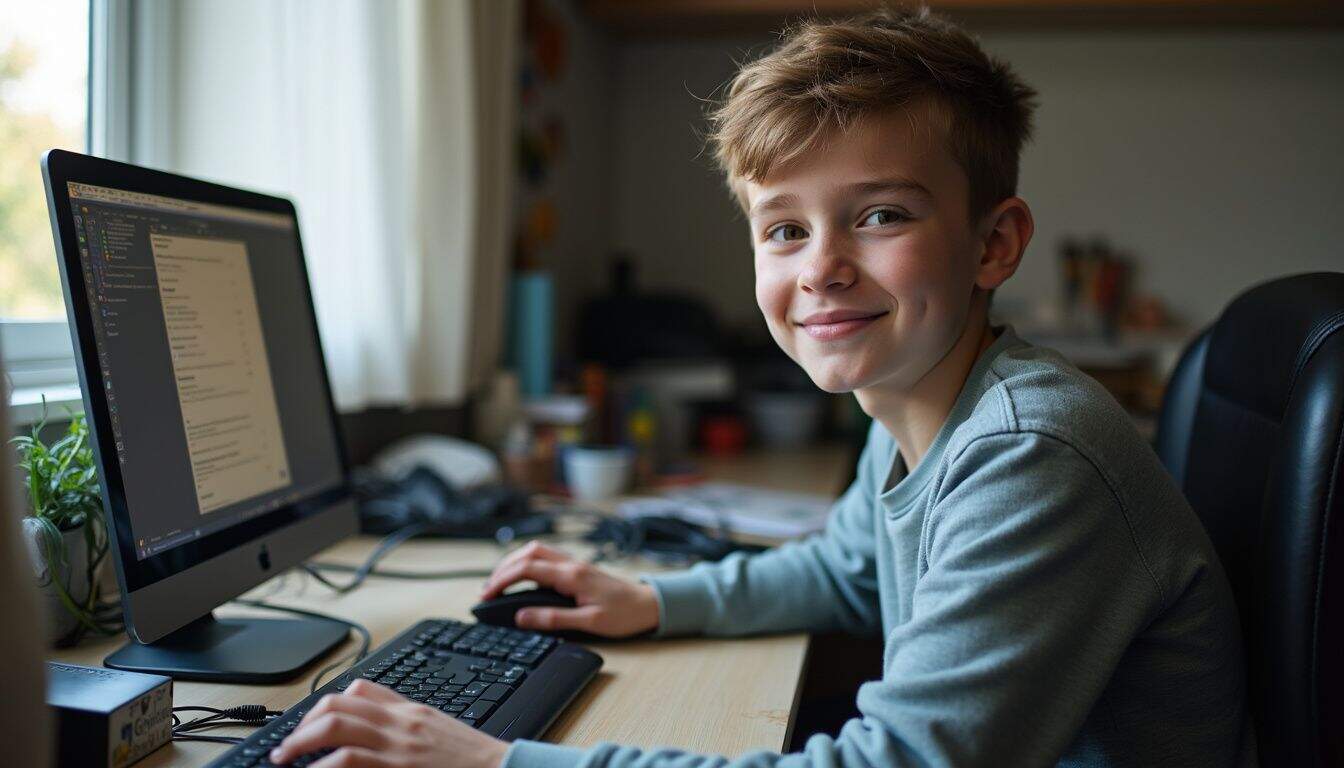
A clean, reliable setup removes friction. Fewer issues mean more skill growth per hour.
What quality equipment should I invest in for better gaming?
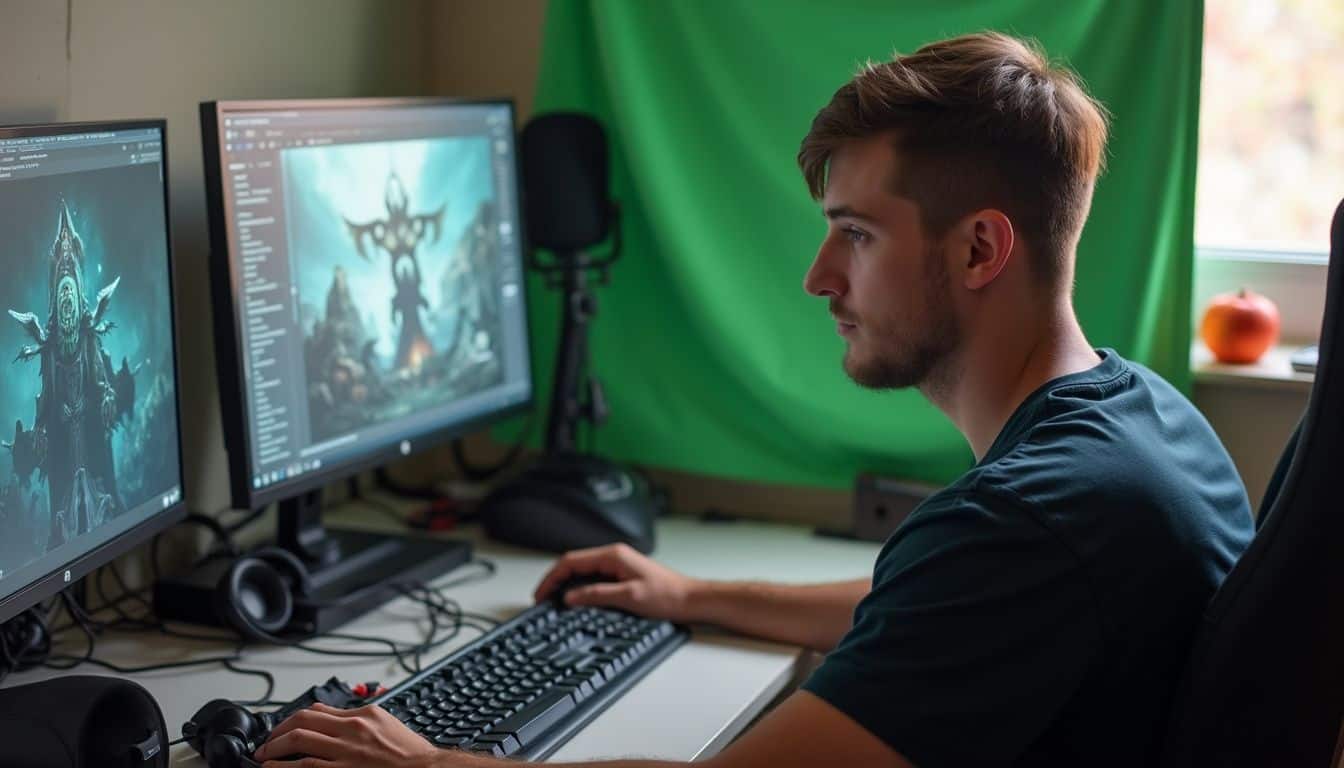
Start with the PC. Choose at least an Intel i5 or Ryzen 5 CPU, 16GB RAM, and a dedicated graphics card. You will get higher frame rates and smoother visuals.
Use a sharp display so small details pop in Valorant or Fortnite. Many players like dual monitors, one for the game and one for stats or streaming tools.
A responsive keyboard and a reliable gaming mouse make every input count. Comfortable headphones matter for long sessions and for sound cues in games like Counter-Strike: Global Offensive.
Streamers should get a good microphone. USB is fine for most, and XLR gives more control. Add simple lighting or a green screen to clean up the webcam view.
Audio tools with noise reduction can keep your callouts clear for teammates.
How do I ensure a stable internet connection for gaming?
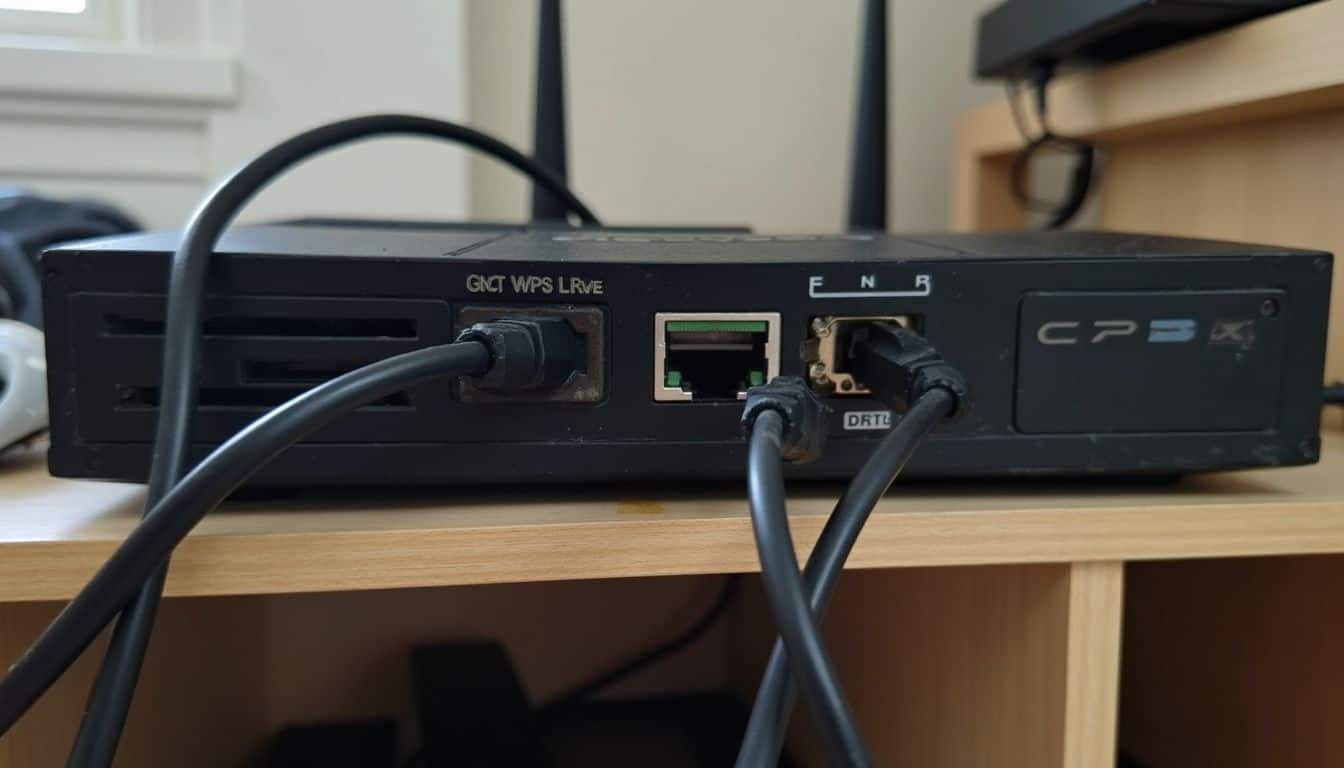
Use Ethernet. Plug the console or PC into the router with a cable. Cat 6 or Cat 7 cables move data faster and more reliably than older types.
Place the router in a central, high spot away from thick walls or metal. This simple change can reduce drops and spikes.
Set up port forwarding for specific games if needed. Test different DNS servers to lower ping. Google DNS worked well in my home.
Keep the router’s firmware updated to avoid slowdowns or security issues. Comwave plans range from 30 Mbps for casual play to 1,000 Mbps for heavy use like streaming tournaments.
For most online matches, aim for at least 30 Mbps download speed and a steady upload.
Stay Updated
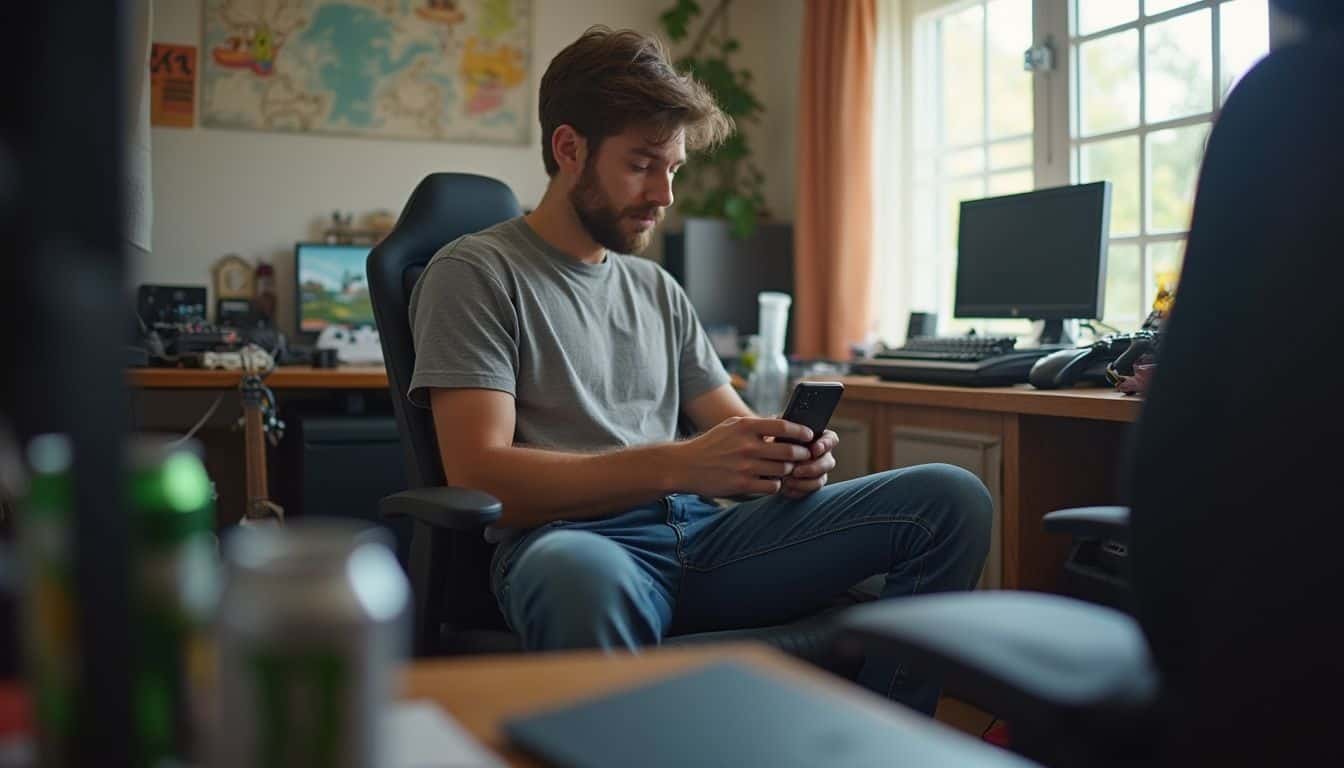
Games change fast. Keep up with patch notes, meta shifts, and hotfixes on Twitter, Discord, and Reddit. Early knowledge turns into wins.
Why is it important to study patch notes regularly?
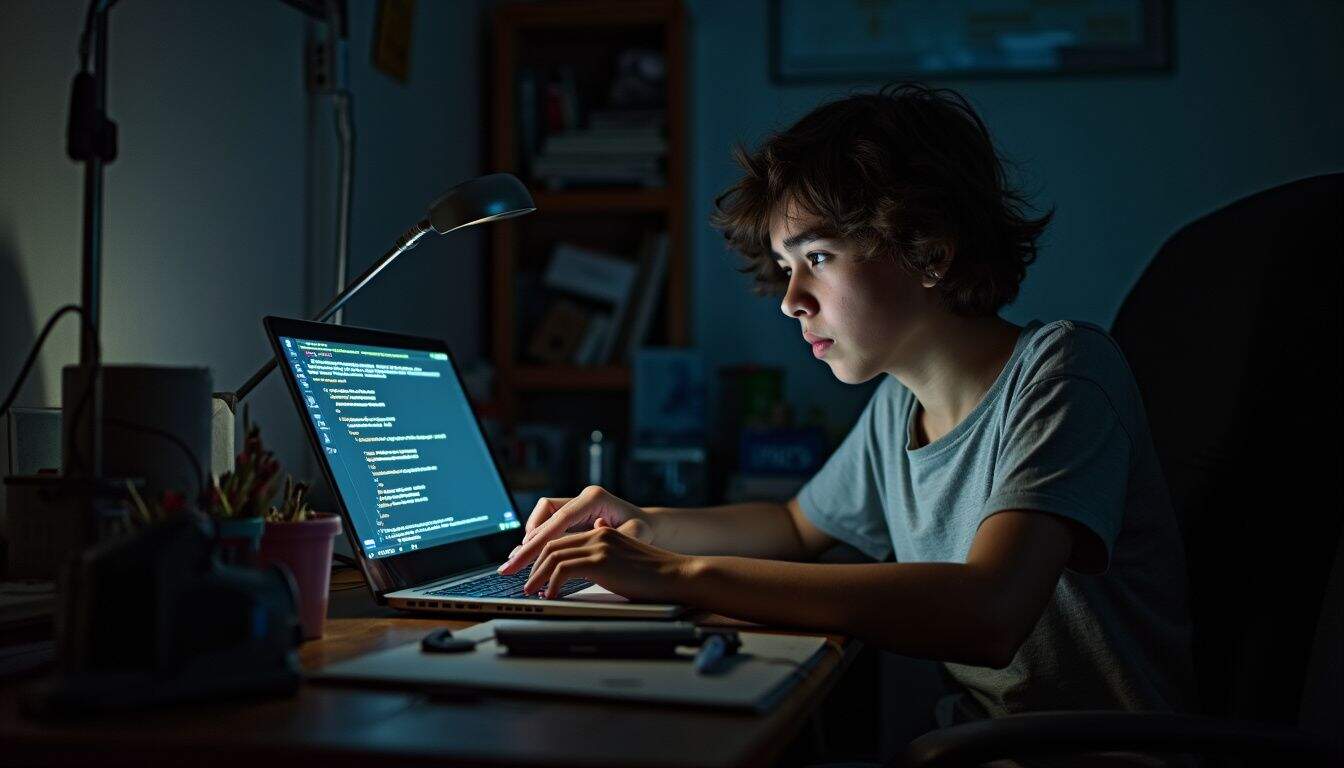
Patch notes highlight changes to game mechanics, character balances, and fresh content. In 2023, Riot Games adjusted several League champions with buffs and nerfs.
Teams had to rethink plans overnight. Players who read the notes first adapted faster and gained ranking.
New maps or weapons can flip the meta. A new hero in Overwatch shifted team picks within hours for my group.
Reading notes before logging in gave me an edge. I could switch characters before others noticed what was strong or weak.
How do I follow game meta and updates effectively?
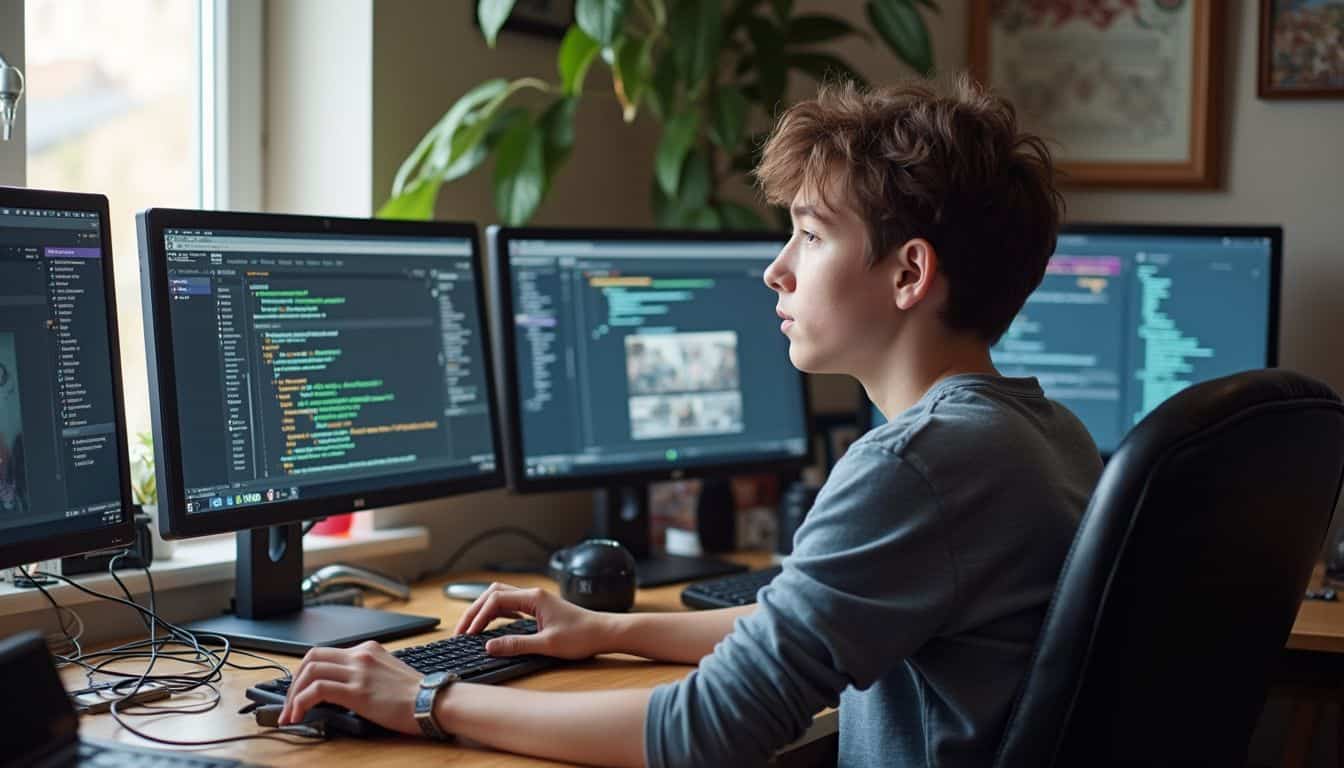
Check official patch notes from Riot, Valve, and Blizzard after each update. Look for changes that affect your main picks and maps.
Reddit communities like r/gaming post meta breakdowns and strong builds. The best posts explain why certain tactics rise or fall.
Watch professional gamers on Twitch and YouTube to see updates applied in real time. Follow developers on social for instant patch alerts.
Forums such as GameFAQs and IGN Boards host deeper analysis. If you spot an overpowered pick in League, test it yourself to gain a quick edge.
Following pro streams taught me tricks that were not obvious from patch notes alone.
How can I prioritize my health while gaming?
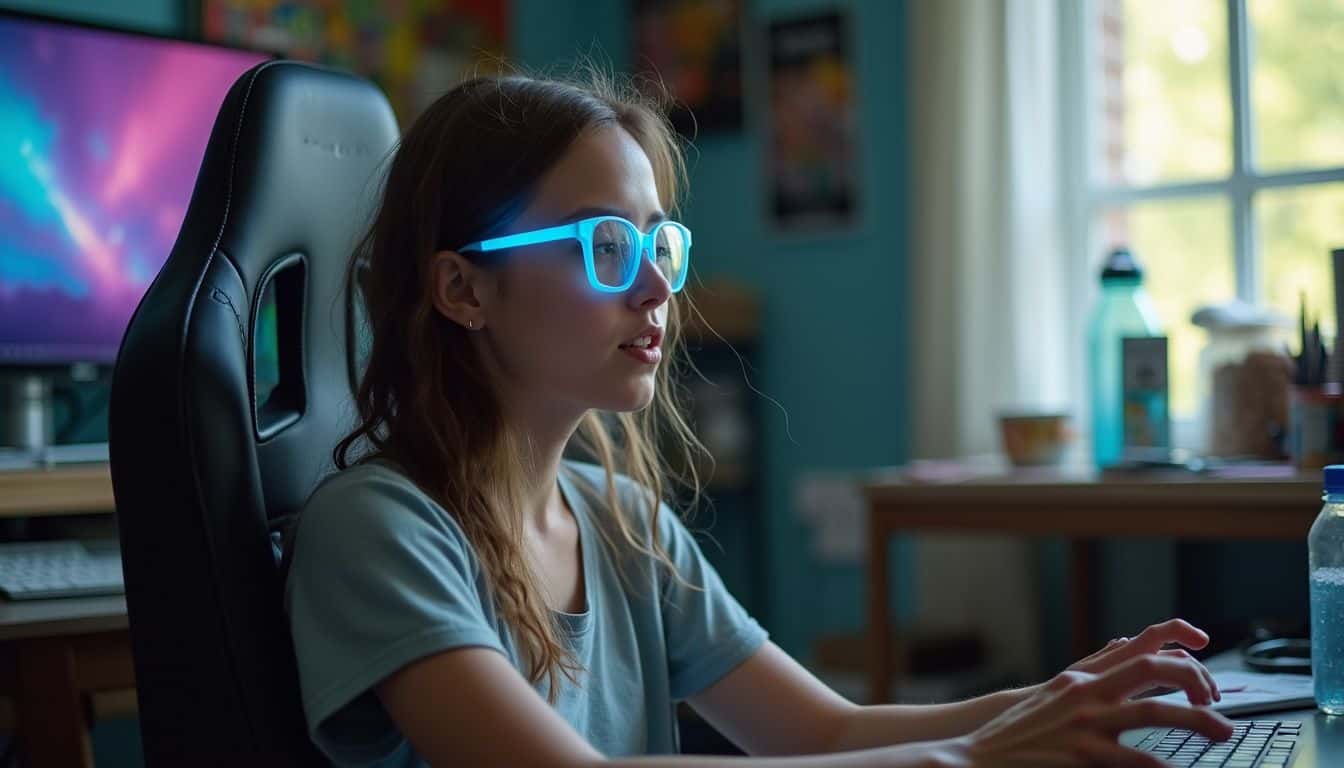
Health supports skill. Use blue light filters, an ergonomic chair, and simple stretches. Good habits protect focus and hands during long sessions.
Why should I take regular breaks during gaming sessions?
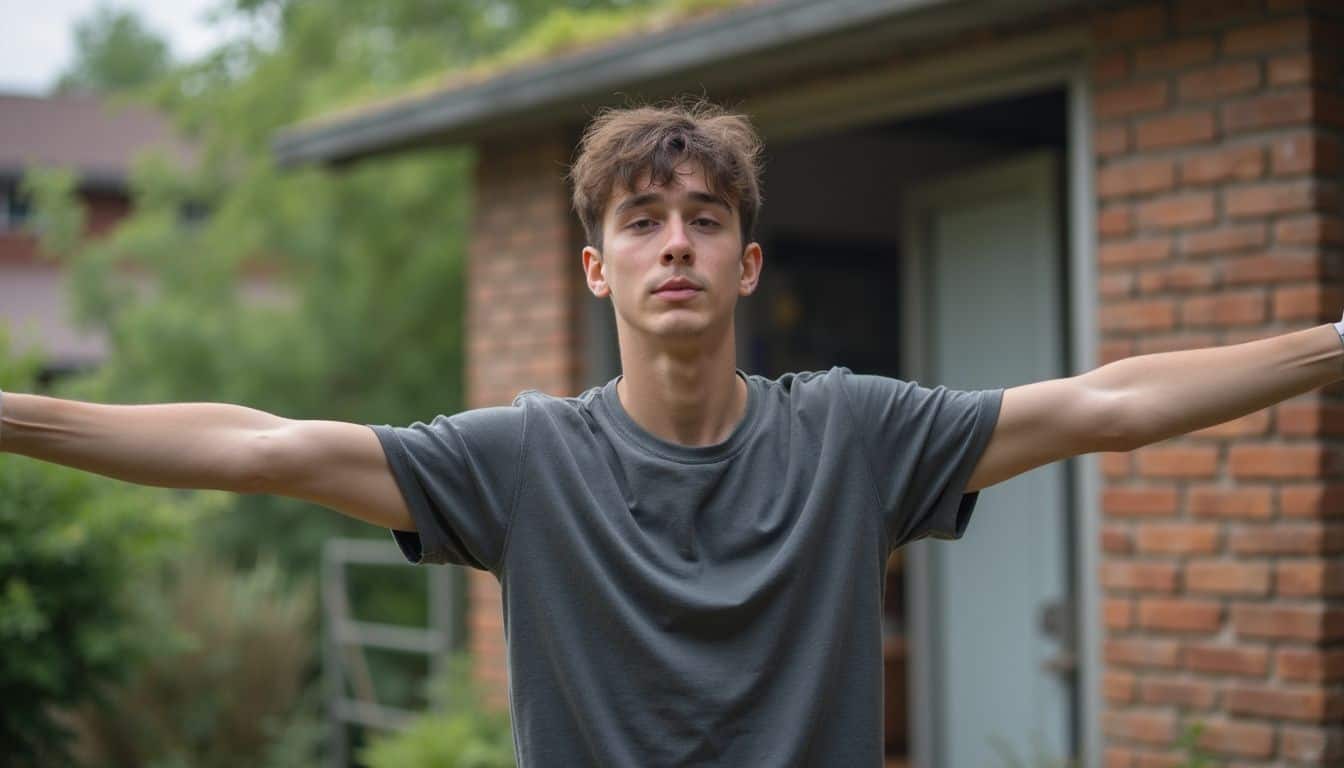
Breaks prevent gaming burnout and keep your aim fresh. Dr. Matthew Barr notes that spaced sessions boost cognitive function and performance. He says, If you are gaming for six hours a day, you would be a much better player if you space that out as much as possible.
The 50/10 rule works well. Play for fifty minutes, then stretch or walk for ten. Eye strain drops and energy returns.
Duffman suggests lighter training two to three weeks before tournaments to avoid fatigue. Topson also values mental stamina. Time away from the screen helps confidence in clutch rounds.
Breaks support mental health by lowering stress. Sunlight improves attention more than caffeine. See tips on maintaining composure during intense gaming sessions for steadier ranked play.
How do hydration and rest affect gaming performance?
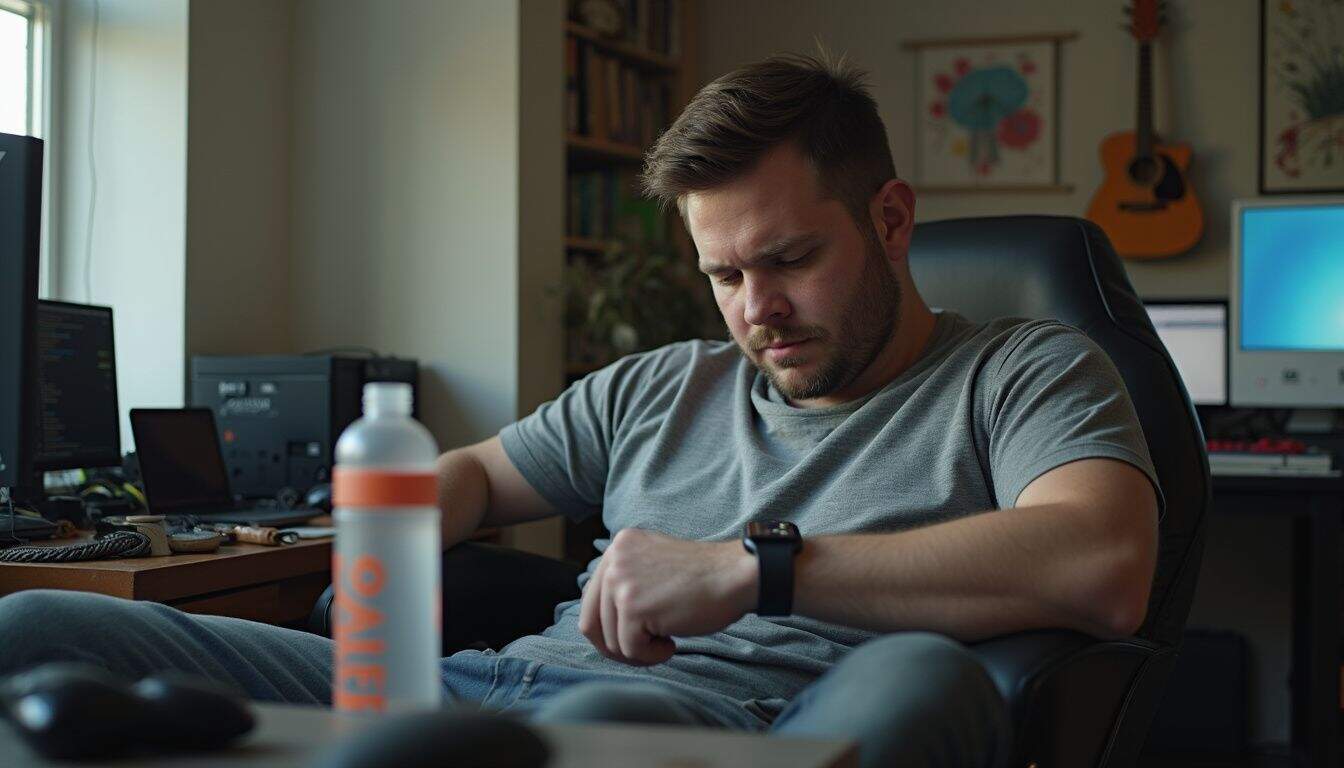
Dehydration causes fatigue, dizziness, and reduced focus. Dr. Barr explains that hydration affects sleep and cognitive performance. Duffman adds that low fluids drain energy and mood during long sets.
Drink water through the day for sharper reactions and faster thinking. Small sips during queue times work well.
Hydration is not just about quenching thirst. It supports your brain’s ability to process information quickly, says Dr. Barr.
Watch for signs of dehydration like dark urine or headaches. Build a fluid routine before, during, and after matches so concentration stays steady.
Limit caffeine and alcohol, which can worsen dehydration. Apps like WaterMinder or simple phone reminders help you keep a steady intake.
Engage with the Gaming Community
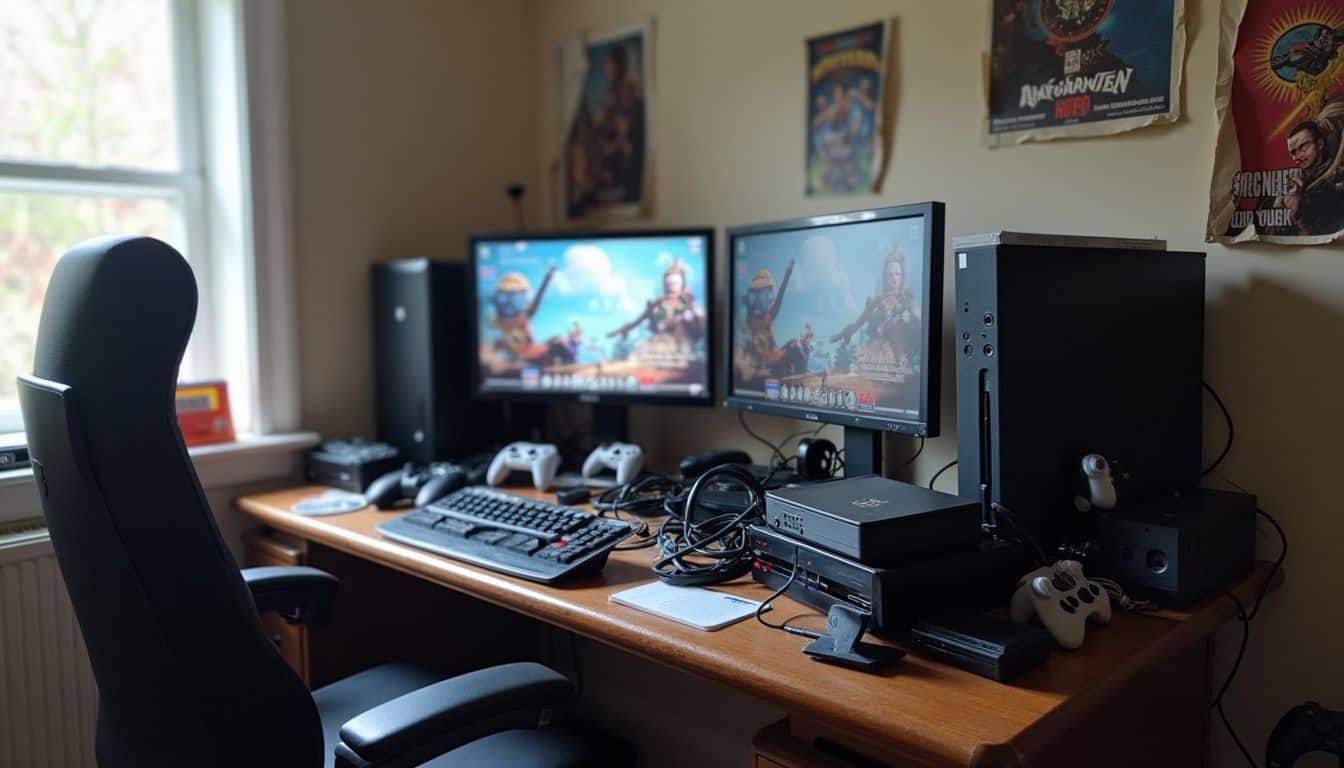
Join servers, forums, and group chats. Trading tips, scrimming, and playing customs speed up growth and keep sessions fun.
How do forums and online groups enhance gaming skills?
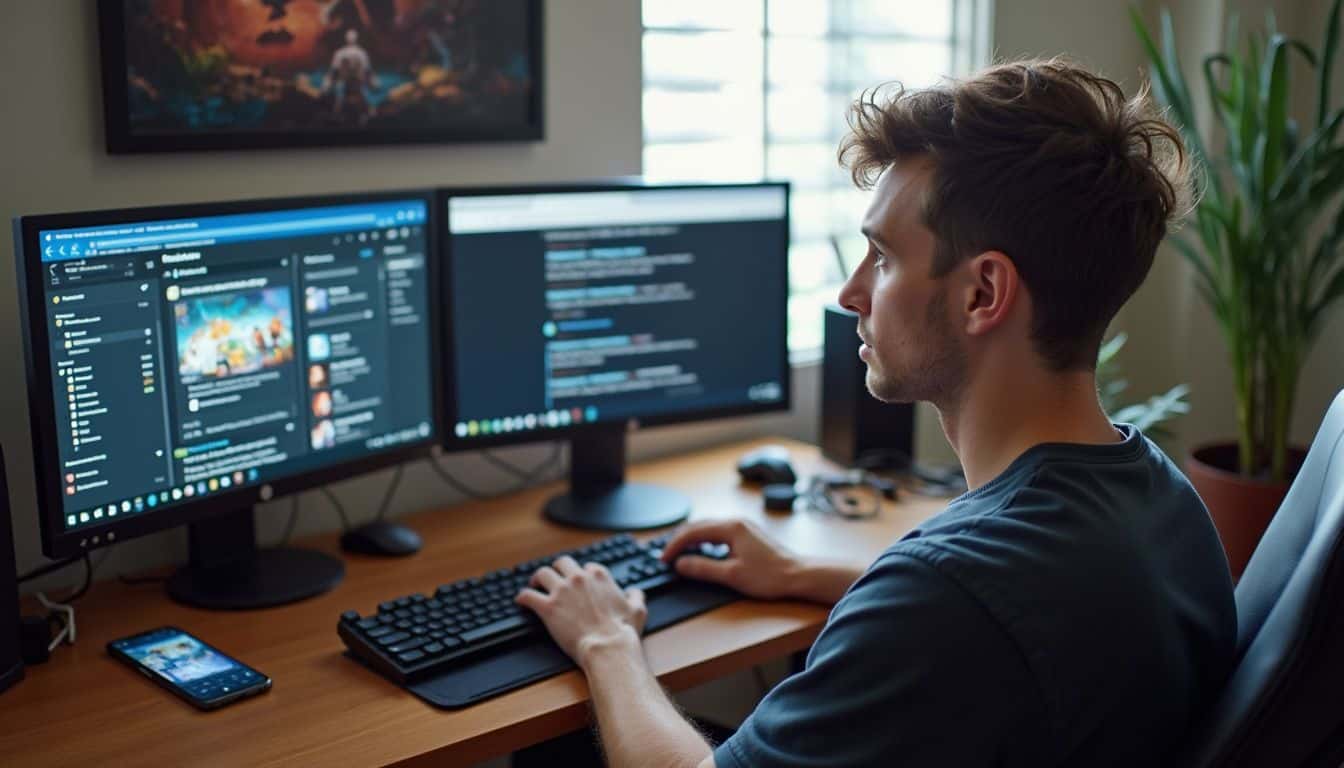
Forums, Discord servers, and subreddits post tips every day. Members break down updates, debate meta shifts, and host events that boost teamwork.
These groups also share news on tournaments and gear like Razer mice or HyperX headsets. You get faster answers than searching alone.
Working together brings real-time help for tough in-game challenges. That support often leads to quick improvements during matches.
Creators on YouTube or Twitch run contests that motivate practice. Feedback threads also show developers which updates land well.
What are the benefits of partnering with experienced players?
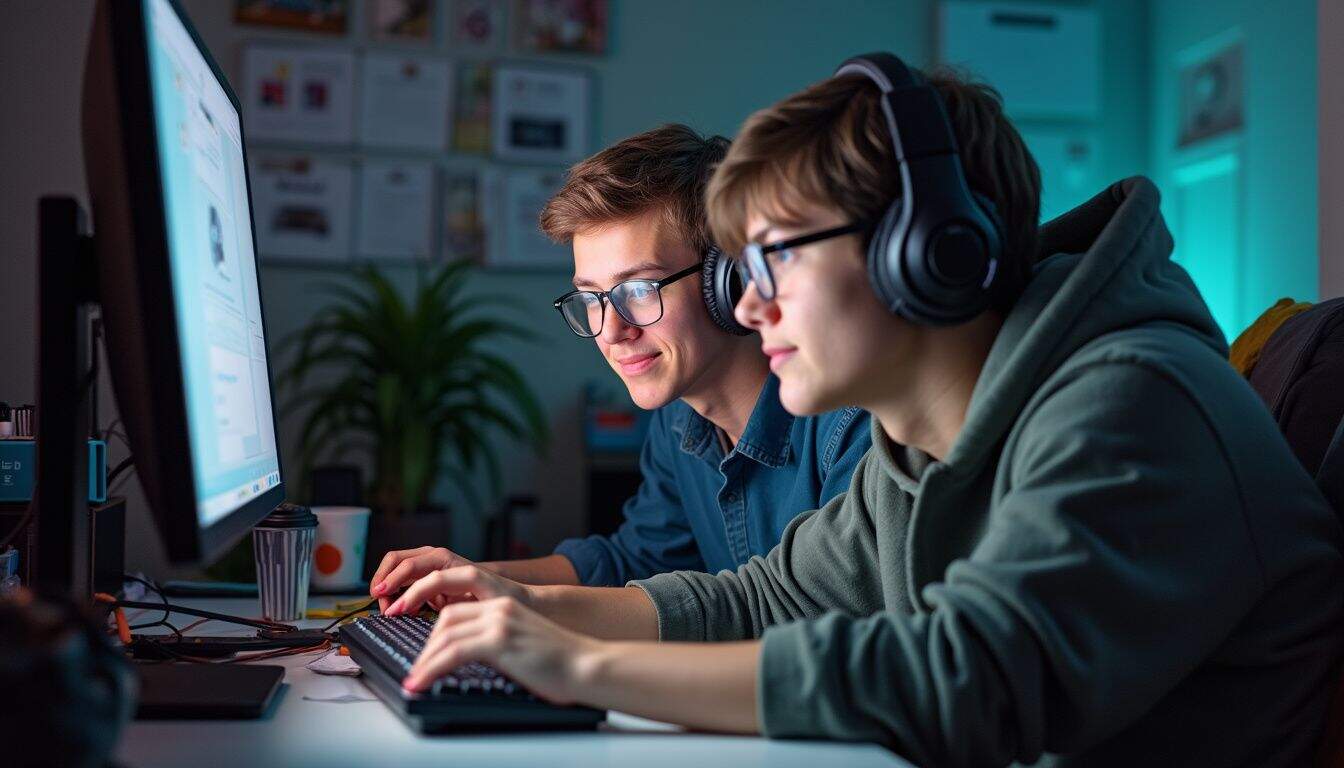
Mentors share advanced strategies and small fixes you might miss. Calm coaching reinforces fundamentals and sharpens tactical thinking.
My skills jumped after joining Discord groups with ranked veterans in Apex Legends. They explained pro techniques while we played.
Teaching newer players helps too. The protégé effect made me recheck basics and explain moves step by step during Fortnite scrims.
Working with veterans exposes you to diverse playstyles. Better communication follows, which lifts teamwork and speeds adaptation to meta shifts.
How Will Gaming Skill Development Evolve in 2025?
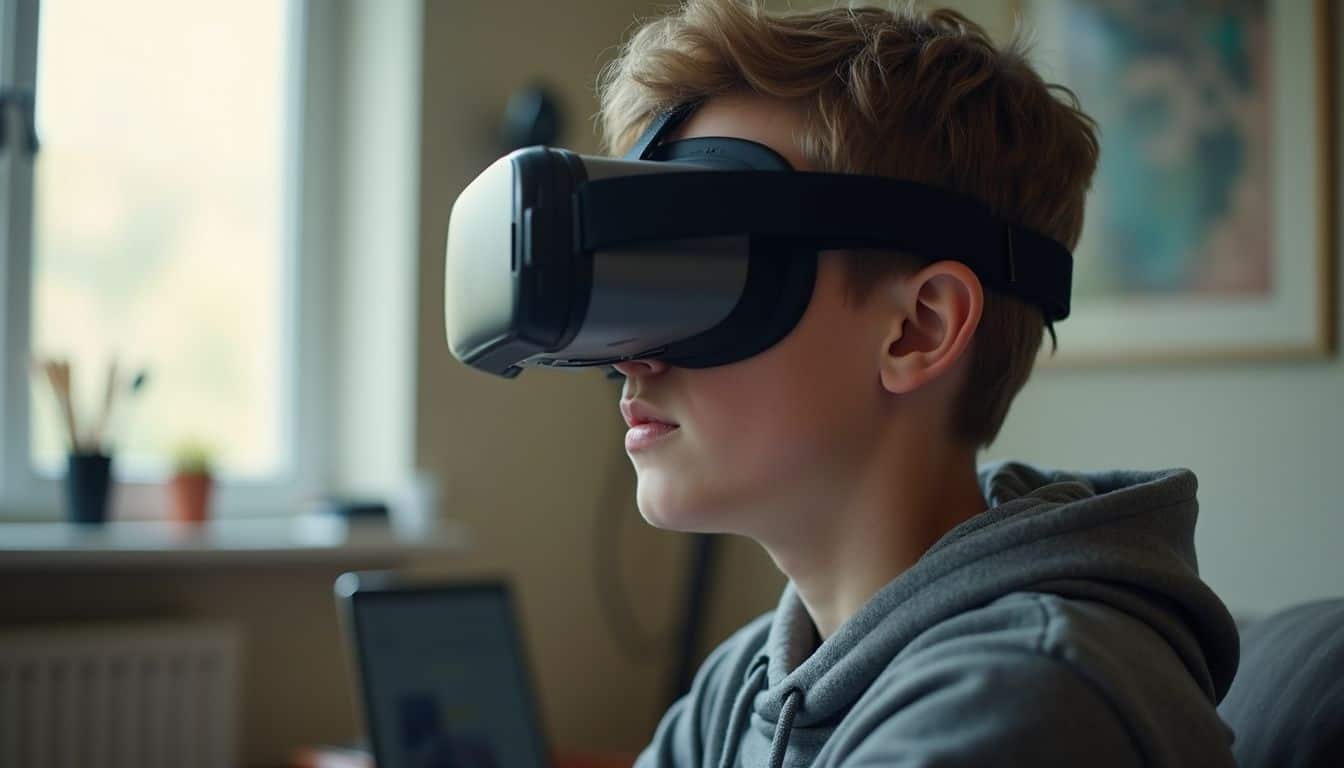
Skill growth should speed up in 2025. XR tools like AR and VR will give more immersive drills for reflexes and teamwork.
Triple-A games plan richer graphics and stories, so competitive play gets sharper. Cloud gaming and Games-as-a-Service let you train on many devices with lower lag, thanks to stronger 5G.
Mobile play keeps growing with wider access and faster networks. Achievement-driven players now make up about 39 percent. They chase challenges and leaderboards.
Use pro VODs and your own gameplay analysis to find fast wins. Train with online squads or enter small tournaments for steady feedback. Keep clear goals, protect health, and refine gaming strategies. That is how you build durable gaming skills in 2025 and beyond.
People Also Ask
What are the most effective strategies to improve gaming skills quickly?
Practice consistently and set clear goals for each session. Analyze your gameplay to spot mistakes, then focus on correcting them in future matches. Use tutorials and guides that break down advanced techniques into simple steps.
How can I develop better reaction time while playing games?
Train your reflexes by using practice modes or specialized apps designed for gamers. Play fast-paced titles that require quick decisions; over time, you will notice faster responses during intense moments.
Why is understanding game mechanics important for skill improvement?
Knowing how a game works lets you make smarter choices in every situation. When you understand rules, character abilities, and map layouts, you gain an edge over opponents who rely only on instinct.
Can teamwork help me become a stronger player even if I play solo sometimes?
Yes; learning communication skills from team-based games improves decision-making under pressure and teaches strategy adaptation against different play styles. These lessons transfer well when facing challenges alone or with others in competitive settings.
References
https://www.comwave.net/residential/blog/11-ways-to-improve-your-gaming-skills/
https://www.linkedin.com/advice/1/youre-serious-gamer-how-can-you-take-your-skills-aygof (2024-01-23)
https://sybergaming.com/post/gaming-setup-streamer
https://box.co.uk/blog/essential-gears-boost-gaming-performance
https://ziplyfiber.com/blogs/article/how-to-optimize-your-gaming-latency-with-fiber-internet (2025-01-28)
https://www.twoaveragegamers.com/level-up-your-gaming-skills-the-ultimate-guide-for-2024/ (2024-07-22)
https://havokjournal.com/culture/life/why-staying-informed-on-game-updates-can-improve-your-gaming-experience/ (2025-04-27)
https://vocal.media/gamers/how-to-balance-gaming-and-daily-life-a-guide-for-gamers
https://1-hp.org/blog/healthy-eating/hydration-101-for-gamers/ (2023-09-20)
https://moldstud.com/articles/p-best-practices-for-building-a-thriving-community-around-your-game (2025-03-19)
